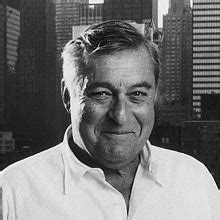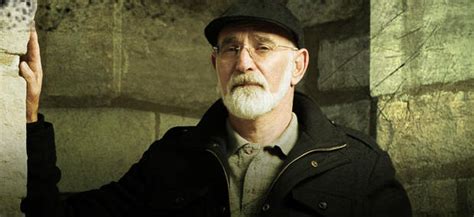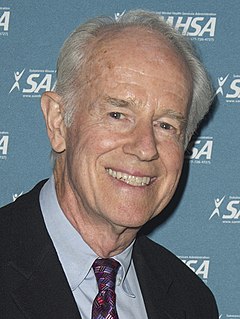A Quote by Albert Brooks
There's always the standard six people you can hire that have played all these villains in Hollywood. Instinctively, when they come on screen, you know what's going to happen. You don't know the story, but you know what they do.
Related Quotes
The key thing that I find that when you're kind of in boom times and you're hiring bunches, if you can hire, you know, always maintain very high standards and even if you, you know, can't find enough of, you know, what is typically called A players, then don't hire the people. All right? So, you know, use that as a way of standards.
The creative person wants to be a know-it-all. He wants to know about all kinds of things-ancient history, nineteenth century mathematics, current manufacturing techniques, hog futures. Because he never knows when these ideas might come together to form a new idea. It may happen six minutes later, or six months, or six years. But he has faith that it will happen.
I myself, as I'm writing, don't know who did it. The readers and I are on the same ground. When I start to write a story, I don't know the conclusion at all and I don't know what's going to happen next. If there is a murder case as the first thing, I don't know who the killer is. I write the book because I would like to find out. If I know who the killer is, there's no purpose to writing the story.
That's what I love about documentary filmmaking, we never know where the story is going, we don't know what is going to happen next, and we're inside a culture of people that you have to figure out in many ways. It's a relationship between what you thought might have been the story, and what happens in the 'field.'
Most of the time, particularly with this record, 'The Light of the Sun,' I really just been standing in front of a microphone and blacking out musically, you know. I'd come back a couple hours later and there's six songs from beginning to end, you know? I don't know what I'm going to say. I don't know how I'm going to say it.
A lot of times, when doing the paranormal research and doing an investigation, you don't know what you're going to encounter. You don't know what you're going to come up against. People have to realize that we don't know them and they don't know us. I'm talking about the people that live in the homes. Sometimes you don't know what you're going to encounter, what type of situation you're going to walk into.
When I am working on a book or a story I write every morning as soon after first light as possible. There is no one to disturb you and is it is cool and you come to your work and warm as you write. You read what you have written and, as you always stop when you know what is going to happen next, you go on from there. You write until you come to a place where you still have your juice and know what will happen next and you stop and try to live through until the next day when you hit again.
There was a time in my 40s where I thought, oh, it's all over - not just work, but I'm never going to feel young again, I'm always going to feel like I know what's going to happen, I'll know what to expect. Looking back I don't know if that was a midlife crisis, I don't know - but I don't feel that now. There's possibilities. It gets better.
Usually, you get a script and you have the whole story. All the acts are there, for a play. You know what happens in the first, second and third acts, and you know how it starts, where you go and where it finishes. [With American Horror Story: Asylum], it's a whole new experience. I don't know where it's going, and I don't know what's going to happen next. It's been an interesting way to work. It's made me work in a much more fluid, braver way, just taking every chance that comes along.




































